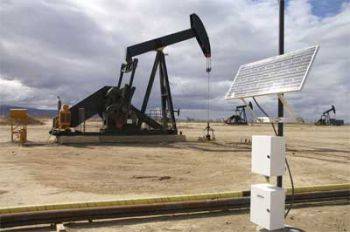Tulsa-based Omnia Midstream Partners, LLC announced a development agreement to integrate renewable energy into the operations of Devon Energy Corp’s Stateline field located in the Delaware Basin.
Omnia is an energy solutions developer and advisor and worked with Devon to integrate emissions-reducing renewable energy and battery storage into its power supply to supplement a highly dynamic upstream and midstream power demand. Omnia specializes in creating sustainable environmental solutions for upstream and midstream energy operations.
The project integrates the latest photovoltaic and battery technologies into the company’s upstream oil and gas operations to reduce emissions and improve efficiency across the business.

Design of the project incorporates American made solar panels, inverters, and battery storage to support dynamic power demand on the company’s private electric grid. Moreover, the design incorporates data generated from Devon’s existing platforms, then utilizes predictive analytics and insights to ensure that the renewable energy is being put to efficient use; lowering costs and providing a competitive advantage for future growth.
Projects such as this one are a step toward delivering on the industry’s goals to achieve net zero Green House Gas emissions for direct and indirect sources by 2050.
Chad Cagle, Omnia’s co-founder, said, “renewables can drive responsible growth in the traditional energy sector. Our approach combines experience, data analytics, and renewable technologies to deliver sustainable energy transformations for oil and gas companies.”
He said a key element of the process has been Devon’s preference toward employing technology driven solutions for complex problems that require innovative solutions. Because of the collaborative approach Omnia has been able to develop other applications for solar energy in the upstream space that will be attractive to other companies.
Cagle also points out the tremendous backlogs of large-scale renewable projects seeking interconnection agreements with various utilities.
“By focusing on our client’s specific, smaller-scale, operational needs downstream of the utility meter, we can quickly implement a solar and battery solution to improve reliability, runtime, reduce operating costs, and most importantly reduce carbon footprint without the lengthy approval process necessary for larger scale projects.”







